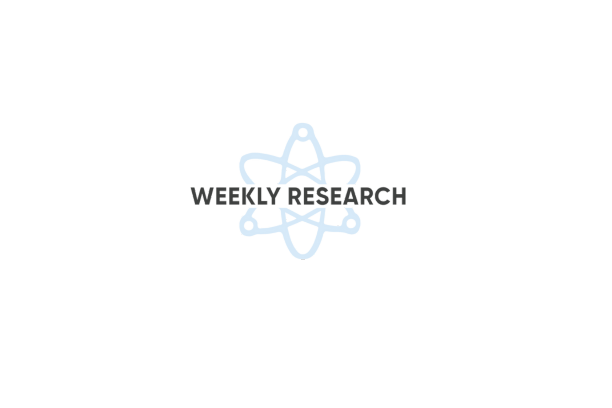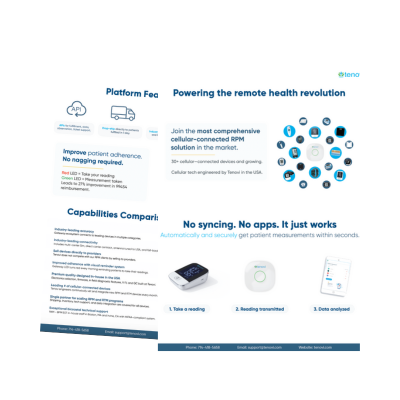The importance of IoT in healthcare lies in its ability to transform how services are delivered, monitored, and managed. From chronic condition management to improved clinical workflows, IoT (Internet of Things) technologies continue to reshape the landscape of modern healthcare.
This article explores the evolving role of IoT in healthcare and highlights two recent studies showcasing its real-world impact and growing potential.
What is IoT in Healthcare?
IoT in healthcare refers to connected medical devices and systems that collect, transmit, and analyze patient data in real time. These technologies enable providers to monitor vital signs, track treatment adherence, and intervene proactively in chronic diseases such as COPD, heart failure, and asthma.
Below are six updated examples that illustrate the continued importance of IoT in healthcare.
Remote Patient Monitoring
IoT devices, including wearable sensors, smart scales, blood pressure monitors, and other RPM devices, all support remote patient monitoring. RPM enables healthcare providers to track patients’ health from a distance, detect issues early, and reduce unnecessary clinic or hospital visits. For patients with chronic conditions, this translates into better care access and fewer disruptions to daily life.
Enhanced Patient Care and Personalization
IoT enables real-time data collection and analysis, providing healthcare providers with a wealth of information about patient’s health status. This data-driven approach allows personalized care plans and timely interventions. In addition, more data will enable providers to gain deeper insights into patients’ behavior, preferences, and patterns, leading to more patient-centric care delivery.
Streamlined Workflows and Operational Efficiency
With IoT technologies, healthcare workflows are streamlined and operational efficiency is improved. Connected devices such as intelligent beds and asset tracking systems are optimizing resource utilization, reducing errors, and automating routine tasks. As a result, healthcare systems realize cost savings, improved staff productivity, and more efficient delivery of healthcare services. Furthermore, IoT facilitates preventive and predictive healthcare by continuously monitoring patient data, detecting early warning signs, and enabling proactive interventions for better healthcare decision-making.
Medication Adherence
The importance of IoT in healthcare is evident in improving medication adherence. This can be a critical factor in managing chronic conditions and avoiding hospitalizations. IoT-enabled smart pill dispensers, mobile reminders, and connected medication tracking systems now integrate with remote therapeutic monitoring (RTM) programs. These devices remind patients to take their medications, but alsolog and transmit adherence data directly to healthcare providers in real time.
With RTM, clinicians can monitor trends in medication usage, intervene early after a missed dose, and tailor support for patients who may be struggling with adherence. For example, smart pillboxes can notify care teams when doses are missed repeatedly, allowing for timely outreach and care plan adjustments.
Telehealth and Telemedicine
The importance of IoT in healthcare is underscored by facilitating the expansion of telehealth and telemedicine services. IoT-enabled RPM devices and wearables empower remote consultations, virtual monitoring, and telehealth interventions. Additionally, IoT bridges the gap between patients and healthcare providers, particularly in rural or underserved areas.
Furthermore, the integration of IoT in telehealth and telemedicine not only enhances convenience and accessibility but also contributes to improved healthcare outcomes and patient satisfaction. For instance, technology enables access to vital healthcare services and alleviates the burden on traditional healthcare facilities.
New Studies: The Importance of IoT in Healthcare
Two recent studies shed light on the potential of IoT in healthcare monitoring and privacy protection. The first study explores the application of IoT in maternity care and the role of continuous monitoring in protecting the health of pregnant mothers and fetuses.
The second study addresses privacy concerns in the decentralized Internet of Medical Things (IoMT) communication system. These studies highlight IoT’s innovative approaches and promising outcomes in healthcare, paving the way for advanced and secure healthcare systems.
IoT-Based Intelligent Health Monitoring System Study
A recent study, Iod-Nets – An IoT-Based Intelligent Health Care Monitoring System for Ambulatory Pregnant Mothers and Fetuses, highlights the importance of IoT in healthcare. Specifically, IoT in maternity care is working to protect the health of women and their fetuses. Maternal health significantly impacts the health of infants both during pregnancy and in the long term. In addition, health issues experienced during pregnancy, such as hypertension and gestational diabetes, may also be linked to the mother’s later-life health problems.
Continuous monitoring of various health factors such as blood pressure, blood glucose, and maternal weight gain is essential during pregnancy. Furthermore, with AI algorithms, IoT-based systems can be designed to provide intelligent and efficient diagnostic capabilities.
The study proposes a novel approach that combines IoT devices and optimized convolutional neural networks to gather clinical information that automatically detects fetal and maternal illnesses. The system employs a cloud-based deep learning classifier to analyze the collected data and predict the health status of mothers and fetuses. Researchers collected real-time data from approximately 9000 cases.
The study results indicate that the proposed classification system shows promise in predicting the health status of pregnant mothers and fetuses, making it suitable for cloud-centric applications in diagnosis systems. In addition, clinical experts found the system’s performance satisfactory for monitoring and detection purposes.
Study Blockchain Approach for IoMT
This study, User Privacy Prevention Model Using Supervised Federated Learning-Based Block Chain Approach For Internet Of Medical Things, addresses privacy concerns in healthcare monitoring with the rapid growth of the decentralized Internet of Medical Things communication system. The researchers propose integrating blockchain technology with a supervised learning-based smart contract to enhance data protection. The proposed solution aims to digitize content and ensure secure communication without compromising personal data.
The proposed lightweight, safe, distributed model acts as a hybrid mechanism, combining blockchain and IoMT to protect users’ private data. The hybrid IoMT system simplifies privacy protection and ensures data integrity. Furthermore, the model addresses attacks and safeguards confidential data in all distributed blockchain scenarios. The researchers propose using a smart contract with distributed consensus features to enhance privacy prevention strategies that act as a firewall against possible attacks.
Why the Importance of IoT in Healthcare Is Growing
The importance of IoT in healthcare lies in its ability to connect data, drive personalized care, and support better decision-making, while improving access and efficiency. As adoption grows and new models of care emerge, IoT will remain a critical enabler for value-based care, home health, and digital-first healthcare ecosystems.
If you are a chronic care, telehealth, RPM services, or software company member, book a consultation and free demo to learn more about leveraging Tenovi’s FDA-cleared remote patient monitoring devices and data aggregation solutions.


